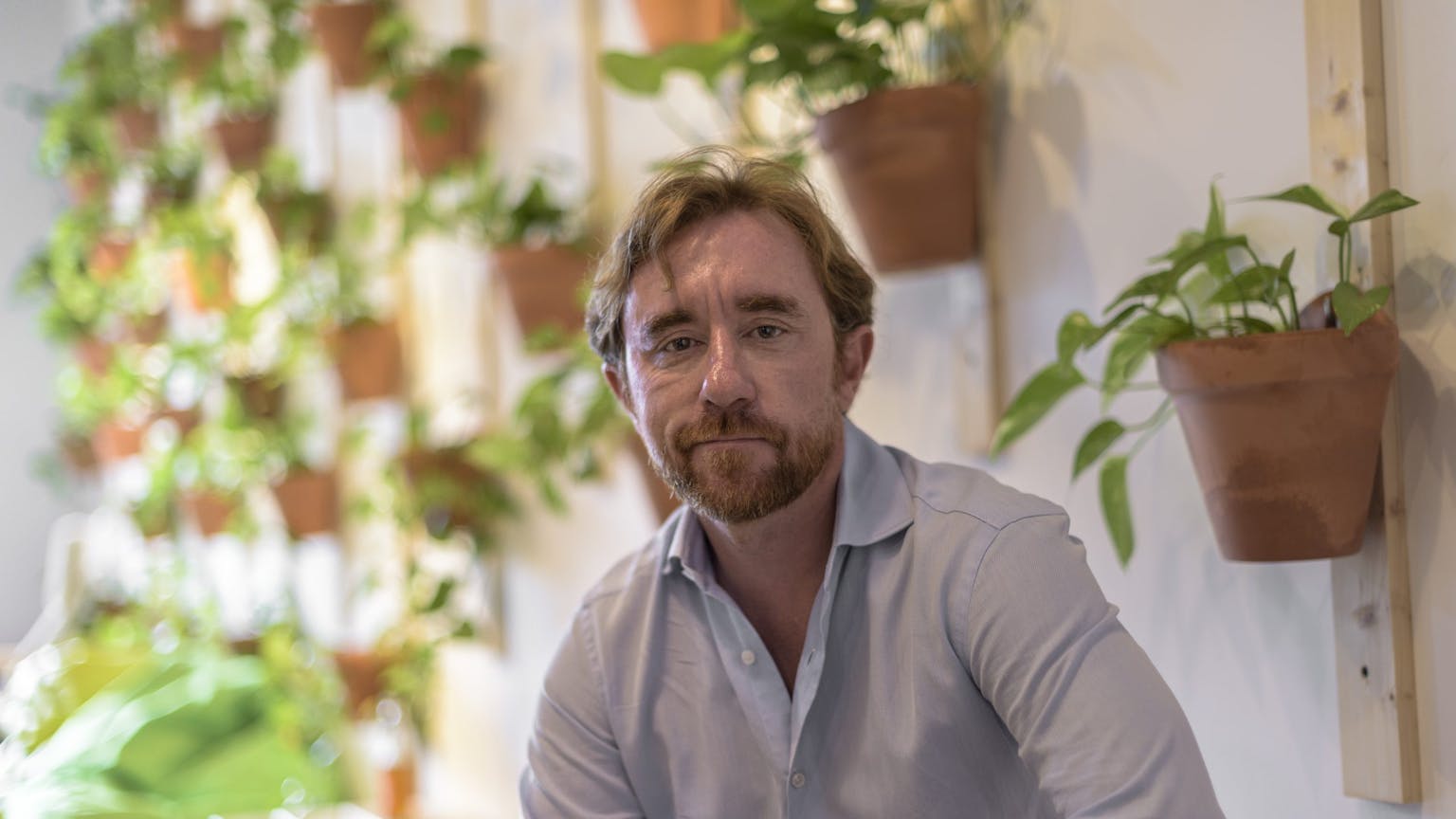Interview with Sacha Michaud, co-founder of delivery app Glovo

On 31 May 2018, Dealroom presented at the AECOC Food Congress in Madrid. The line-up ranged from Five Guys CEO John Eckbert, to Manel Pujol from Uber Eats, to Rabobank’s Global Food Strategist Cyrille Filott, as well as several upcoming food retail entrepreneurs. Also on stage was Sacha Michaud, the co-founder of Glovo, the Spanish on-demand delivery app.
Report - Food Tech & Delivery Marketplaces in Europe
Founded in 2015, Glovo quickly became one of the most popular on-demand delivery apps in Spain. The proposition “anything you order through the app in less than one hour” clearly caught on and the company is now expanding globally. Restaurant delivery is its top category, followed by groceries from supermarkets (the Glovo rider will go inside the supermarket to get the products for the customer).
As the below overview shows, Glovo tops Just Eat Spain and Deliveroo Spain in the iOS and Android app stores. Taking desktop and mobile web visits as a rough indication, Glovo appears to be overtaking both Just Eat and Deliveroo, in a growing market. Combined with the rapid growth of its team, Glovo is a top 5% performer on Dealroom. Thus, the Spanish on-demand delivery platform has demonstrated that succesful later market entry is still possible.
After the congress, Dealroom was keen to do an interview with Sacha.
Others have tried the “order anything” model with mixed results. What do you see as the key drivers for the success of Glovo?
To be able to order anything in your city, from any store or restaurant at a very low cost and immediately within minutes is very powerful. We are all used to ordering food at home or in the office, this was the case even before the Internet so by improving the customer experience and offering a wider selection of their favourite restaurants we knew this would be popular. It is my view that this will also happen across the entire local retail sector. If you can order something from your favourite store across the city at more or less the same cost as going yourself, why wouldn’t you?
We want to make any store, restaurant or product in your city available immediately, at a low cost and 24 hours, 7 days a week.
You are already rapidly expanding globally. What was for you the reason to go global, rather than focus on a few European markets? What are the biggest opportunities for you and others in the next years?
“We have always seen Glovo as a global company, for example, although the Head Quarters are in Barcelona (Spain), from day one English has been the first language. Economies of scale are critical in our industry, the more volume you have, the better the metrics work, so we have always known we need to grow and grow quickly.
We initially focused on Southern Europe but we saw there were interesting opportunities in Latin America, where there are similarities in cultural, language and business partners. Short-term we are focused on Latin American expansion and have recently launched in EEMEA.”
According to a UK survey by Morgan Stanley, the majority of restaurants see online delivery as “a good thing for business”. What are your experiences here?
“The on-demand food industry is interesting in that it actually doesn’t compete with dining-out at all, which was the first worry of restaurants. It actually competes with cooking or eating at home and restaurants are seeing that it is incremental revenue and their restaurants are still full of customers. Every day the revenue we bring is a more important part of their business.”
There is a lot of discussion, especially in Europe, about the gig economy. How do you see this developing?
“In our case we call them Glovers. Most Glovers/riders don’t see this was either a full-time or long-term job, they are often between jobs or trying to earn a little extra on top of other jobs or studies. I think there is a need for this flexibility to cover gaps in the market and not to replace long-term full time employment. The key here is flexibility but at the same time offering a competitive income, otherwise Glovers/riders wouldn’t join the platform.
Society is becoming multi-tasking, we do many more things simultaneously, we only need to have a look at how our kids interact with technology to see where this is going, and this should be embraced because whether we like it or not it’s the future.”
What really surprised you in the food delivery sector in the last years?
“Great quality delivery food is not the same as food served to a table in a restaurant. The preparation, the ingredients, the dishes and packaging are all important. As the delivery part becomes more and more important to the restaurant, we are seeing how there is a need to professionalize the service. We recently launched Cook Room, these are kitchen spaces specifically designed with partners to offer the best service on our platform, takes the delivery part of their business away from their restaurant and allows our partners to offer a better, quicker and often different service than they would from their crowded restaurants. Each partner has his own individual space, we will often design these together with the partner. We will begin rolling-out Cook Room in more cities over the next 12 months.”
What percentage of your orders is food delivery and how do you see this evolve in the future?
“Food Delivery is our largest category and it’s % of orders really depends on the city, geographic location, maturity (how long we have been operating in the city). Besides this, most of our customers use Glovo for multiple categories.”
Report - Food Tech & Delivery Marketplaces in Europe



